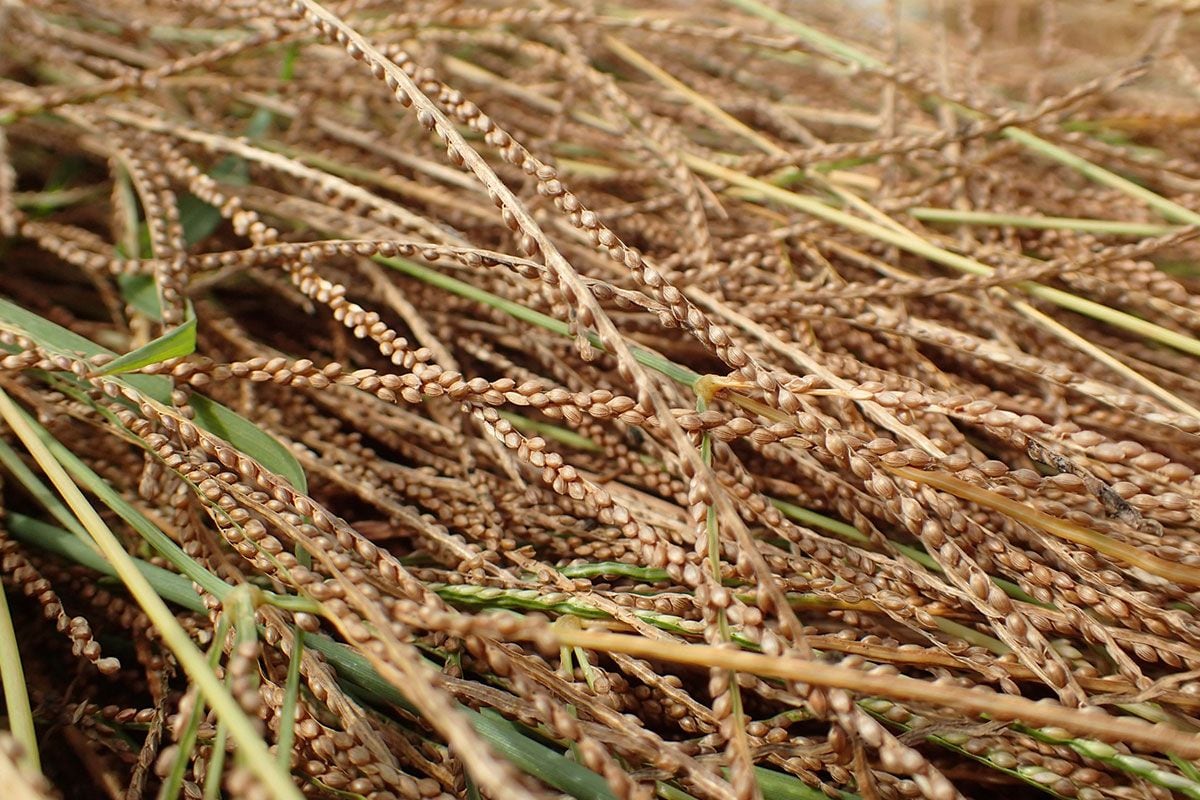Rome-headquartered Obà Food Group filed for a novel food authorisation in February this year and, thanks to the recently streamlined novel food process for exotic or traditional foods from third countries, it says it is confident a positive opinion is on its way.
The deadline for EFSA to raise an objection has already passed and once EU regulators officially approve it as a novel food, Obà can start selling the grain, which has been cultivated and eaten in Africa for over 5,000 years, on its website. Discussions with potential retail distributors are already under way.
UPDATE
On 20 July, EFSA published its scientific opinion which stated it raised no safety objections to placing wholegrain or decorticated grains of fonio - Digitaria exilis (Kippist) Stapf - on the market.
Closely related to millet, fonio has a taste and texture somewhere between quinoa and couscous that Obà describes as being “very delicate with a slight sweet flavour”.
The tiny grain is gluten-free and rich in protein and essential amino acids that are absent in other grains. The crop also grows well on arid soil and requires little water, making it an important solution in reacting to climate change, drought and desertification.
Education
While waiting for EFSA to approve the grain, Obà is not sitting idle, instead gearing up to produce and commercialise fonio grain, flour and a line of fonio-based snacks.
Recognising that consumers will not start buying fonio unless they know what it is, the company is also educating the public on how to cook it with recipes and food pairing suggestions.
A fonio-based tabbouleh may seem an obvious suggestion elsewhere in Europe but that wouldn’t work in Italy, a spokesperson for the company told

FoodNavigator.
The country’s strong culinary tradition means that the company is promoting the grain as a gluten-free alternative to wheat in traditional Italian recipes. Its website says the flour is “fantastic […] for pizza, and even for Panettoni!”
Obà says it has already had good traction in northern Italian cities and the company is confident fonio will share a similar success story as quinoa, which is commonplace today but was unknown in the West not so long ago.
It has taken care to set up a “reactive and scalable” business model with this in mind, working with different partners throughout the supply chain for sourcing, packaging, milling and storing, which allows it the flexibility to scale up when momentum starts to grow.
A reliable network of suppliers
Supplies are stable and it has a reliable network of suppliers in West Africa.
“Of course, fonio production and processing is not as industrialised as the other grains are, but we believe this is the strength of fonio,” the spokesperson said. "It’s natural and directly connected with local farmers’ ancient agricultural tradition.
“Having a stable supply means good partnerships and planning. […] It will clearly requires investments to expand harvesting and processing capacity, but this all what our mission is about.”
“Fair trade practices are fundamental to our business ethic. We believe it is important that the local African communities retain the ownership and leadership of land and production. Generally speaking they are, rightfully so, very proud of fonio harvesting, and they are also aware of the potential of this grain for worldwide nutrition, which makes always the business relations very balanced.

According to the most recent data from the statistics office of the United Nations’ Food and Agriculture Organisation (FAOSTAT), Guinea is by far the biggest producer of fonio, harvesting over half a million tonnes in 2016 (500,986 tonnes) in 2014. Nigeria produced around 82,750 tonnes, followed by the Ivory Coast with around 19,000 tonnes.
The grain has one draw-back, however: the husking process is “complicated, time-consuming and highly labour intensive” due to the very small dimensions of the grain, that measure between one to two millimetres.
“Investment in technology and equipment will alleviate manual work and increase productivity. This is, collectively, the single biggest opportunity.”
New York-based fonio company Yolélé is also working to overcome this obstacle and is raising the funds to open an industrial-scale fonio processing mill.
